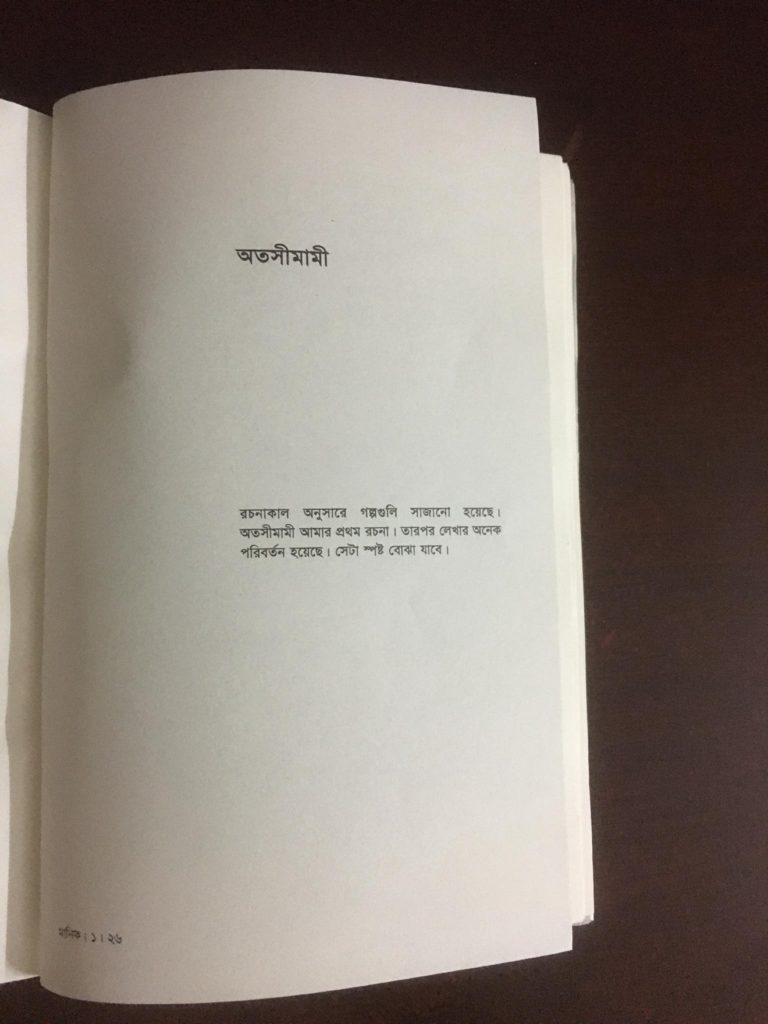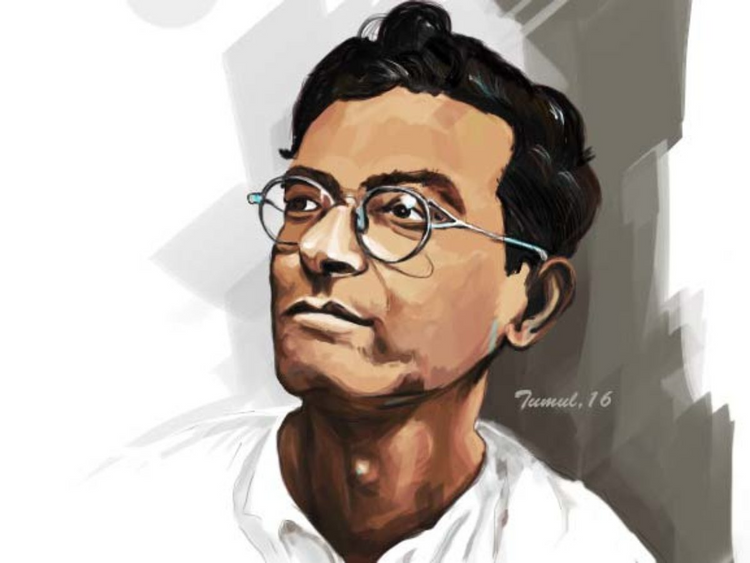I am not a literary critic neither do I claim to be one. Starting with a note of caution, because I am about to take you through the writings of Manik Bandapadhay, greatest of writers Bangla Literature has been blessed with. I got my hands on the full Manik Rochonaboli two months back and since then have had the good foturne of regularly sinking back to his stories. Pardon me for bringing up personal bits but cannot promise not to. How one views what one reads is largely a personal experience.
Manik’s collection of short stories Otoshi Mami has ten stories in total. The first one is Otoshi Mami. If you have heard of Manik, you may have heard about this iconic piece as well. Otoshi Mami was the first published story of his. Jatin Mama is a flutist, living in impecunious surroundings. Jatin Mama faces extreme heath issues due to playing flute, but he will not stop. His wife Otoshi Mama has tried to cajole him to stop but in vain. Her submission and his passion are not tied to individualistic interests. Jatin Mama simply believes the flute is what keeps him alive anyway. His wife believes it too.

The second story Neki is an unconventional love story (Reader, you are welcome to debate it out me though). Ashok is from a well-off family who has returned to the village in his break. Neki is an orphan teenager who lives with her uncle near Ashok’s home. Brihottor Mohottor centers on Momota Di, a woman who leaves her husband of 12 years and her children, whom she labels to be as evil as her husband and joins the ‘Swadeshi Movement’. Her dilemma (or more like the collective dilemma of people who occasionally question the choices they have made) is brought to light when the narrator of the story asks her how she, who couldn’t rectify her husband or bring up her children as ideal citizens take up the ‘Mohot’ (mighty/great) responsibility of contributing to the ‘Swadeshi Movement’.
In Aguntok, Mukul returns home from Ceylon after five year only to receive a most underwhelming of welcomes from his mother, wife, and siblings. As soon as he arrives on the station platform of his hometown, he can feel the uneasiness of being back in a place that he left for good reason. Not all homecomings are nostalgic and grand. He struggles to relate to his family. He finds it difficult to accept the behaviors of his family members, especially when he doesn’t receive enough adoration from his mother upon his return. But what is the fault of the people who were left behind when Mukul went away. Maybe they have yearned long enough for him and now the tears have dried up or they have learnt to live without him.
Manik crafts his stories like Michelangelo chisels his sculpture. With great care and precision. Not one bit unnecessary. The foundation, ever so solid.






















